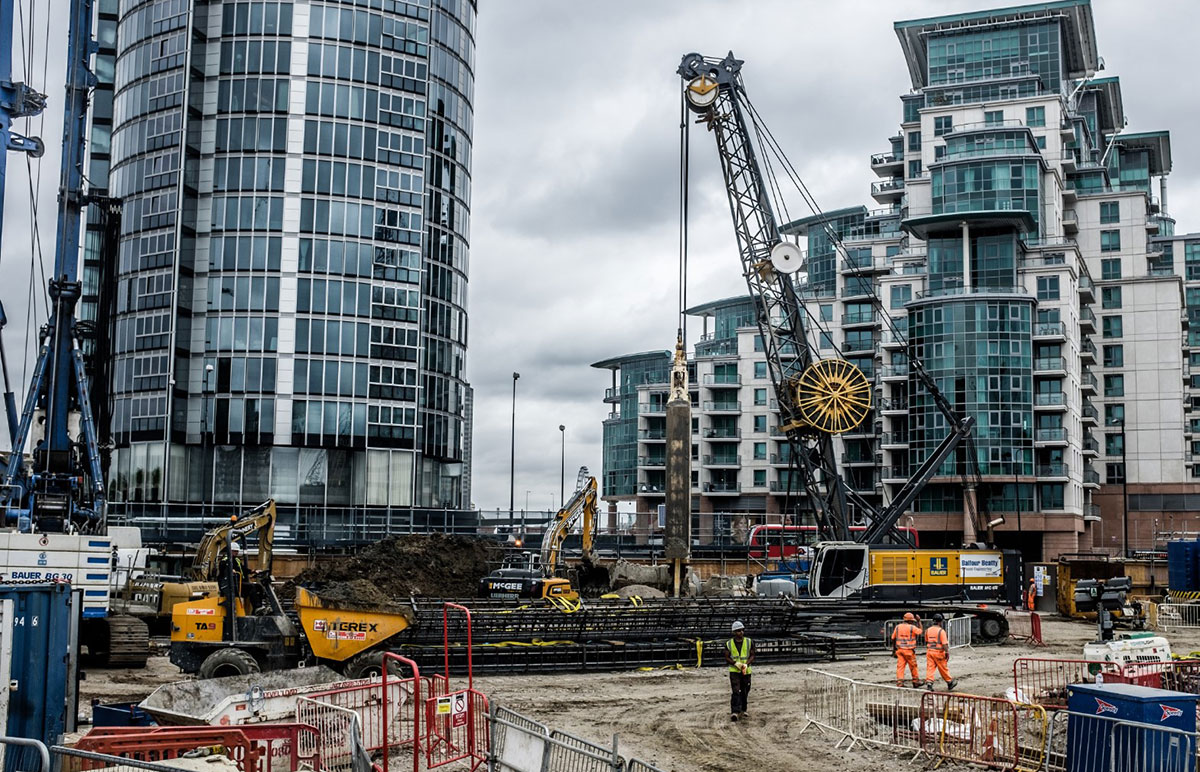Geotheta for Dummies
Geotheta for Dummies
Blog Article
Fascination About Geotheta
Table of ContentsThe Geotheta StatementsThe Definitive Guide to GeothetaNot known Details About Geotheta 4 Simple Techniques For GeothetaThe smart Trick of Geotheta That Nobody is Talking About

They conduct website investigations, collect samples, execute lab examinations, and examine information to examine the viability of the ground for construction tasks - Tailings Engineer. Based on their findings, geotechnical designers supply recommendations for structure style, incline stability, keeping structures, and reduction of geotechnical hazards. They work together with various other specialists, such as engineers, structural engineers, and building and construction teams, to make sure that geotechnical considerations are incorporated into the total project style and application
By evaluating the behavior and residential properties of dirt and rock, they can identify potential geotechnical threats such as landslides, soil negotiation, or incline instability. Their expertise assists protect against failures or accidents that can threaten lives and home. Below are some comprehensive duties and duties of a geotechnical designer: Site Examination: Geotechnical engineers conduct site investigations to gather information on subsurface conditions.
They interpret the data to recognize the properties and actions of the soil and rock, including their strength, permeability, compaction characteristics, and groundwater problems. Geotechnical Analysis and Design: Geotechnical engineers analyze the data collected throughout site examinations to examine the security and suitability of the site for building projects. They execute geotechnical estimations and modeling to evaluate variables such as birthing capability, negotiation, incline stability, side earth pressures, and groundwater circulation.
Everything about Geotheta
Structure Style: Geotechnical designers play an essential role in developing foundations that can safely sustain the desired framework. They examine the soil conditions and tons demands to determine the appropriate structure type, such as shallow structures (e.g., grounds), deep foundations (e.g (https://anotepad.com/note/read/ew8kqmw7)., piles), or specialized strategies like soil enhancement. They think about elements such as negotiation limitations, birthing capacity, and soil-structure communication to establish optimum foundation layouts
They assess construction plans, monitor website tasks, and perform area inspections to validate that the layout referrals are adhered to. If unanticipated geotechnical concerns arise, they assess the situation and supply recommendations for remediation or adjustments to the style. Danger Assessment and Reduction: Geotechnical designers examine geotechnical risks and dangers related to the job website, such as landslides, liquefaction, or dirt erosion.

Collaboration and Interaction: Geotechnical designers work carefully with other experts associated with a job, such as architects, structural engineers, and construction teams. Efficient interaction and cooperation are necessary to integrate geotechnical considerations into the general project style and building procedure. Geotechnical designers supply technological know-how, solution inquiries, and make sure that geotechnical needs are satisfied.
Geotheta Can Be Fun For Anyone
Right here are some kinds of geotechnical designers: Foundation Engineer: Foundation engineers concentrate on making and analyzing structures for frameworks. They assess the dirt conditions, load demands, and website characteristics to determine one of the most proper foundation type and style, such as superficial structures, deep structures, or specialized strategies like heap foundations.
They examine the variables affecting slope stability, such as soil residential or commercial properties, groundwater conditions, and slope geometry, and develop strategies to avoid incline failings and mitigate threats. Quake Designer: Earthquake engineers specialize in evaluating and creating frameworks to stand up to seismic pressures. They analyze the seismic threat of a website, review soil liquefaction possibility, and create seismic design criteria to make sure the safety and security and strength of structures throughout quakes.
They perform area screening, collect samples, and assess the accumulated information to identify the dirt residential or commercial properties, geologic formations, and groundwater problems at a website. Geotechnical Instrumentation Designer: Geotechnical instrumentation engineers concentrate on tracking and determining the actions of dirt, rock, and structures. They set up and keep instrumentation systems that check factors such as dirt settlement, groundwater levels, incline activities, and structural displacements to assess performance and give very early warnings of possible concerns.
Facts About Geotheta Uncovered
They carry out tests such as triaxial tests, debt consolidation examinations, direct shear examinations, and permeability tests to collect information for geotechnical evaluation and style. Geosynthetics Engineer: Geosynthetics designers focus on the design and application of geosynthetic products, such as geotextiles, geogrids, and geomembranes. They utilize these products to improve dirt security, reinforce slopes, provide water drainage options, and control erosion.
They often tend to be investigatory people, which indicates they're intellectual, reflective, and analytical. They are curious, methodical, reasonable, logical, and sensible. Some of them are additionally social, implying they're kind, charitable, participating, client, caring, handy, compassionate, sensible, and pleasant - Geo Tech Engineer.
In the office setting, geotechnical designers use specialized software program devices to carry out calculations, develop layouts, and assess data. They prepare reports, evaluation job specifications, connect with clients and staff member, and coordinate project tasks. The workplace setting offers a favorable environment for research, analysis, and cooperation with other experts entailed in the project.
The smart Trick of Geotheta That Nobody is Discussing
They regularly visit project sites to carry out site examinations, analyze geotechnical conditions, and gather information for evaluation. These gos to include traveling to different areas, sometimes in remote or challenging surfaces. Geotechnical engineers might do soil sampling, conduct examinations, and screen construction tasks to make certain that the geotechnical aspects of the job are being carried out correctly.
Geotechnical engineers likewise operate in specialized geotechnical labs. In these facilities, they perform experiments, do examinations on soil and rock samples, and examine the engineering residential properties of the products. Geotechnical research laboratory engineers home work extensively in these environments, taking care of screening tools, running instruments, and recording information. They collaborate with other laboratory team to make certain exact and trustworthy screening outcomes.
Report this page